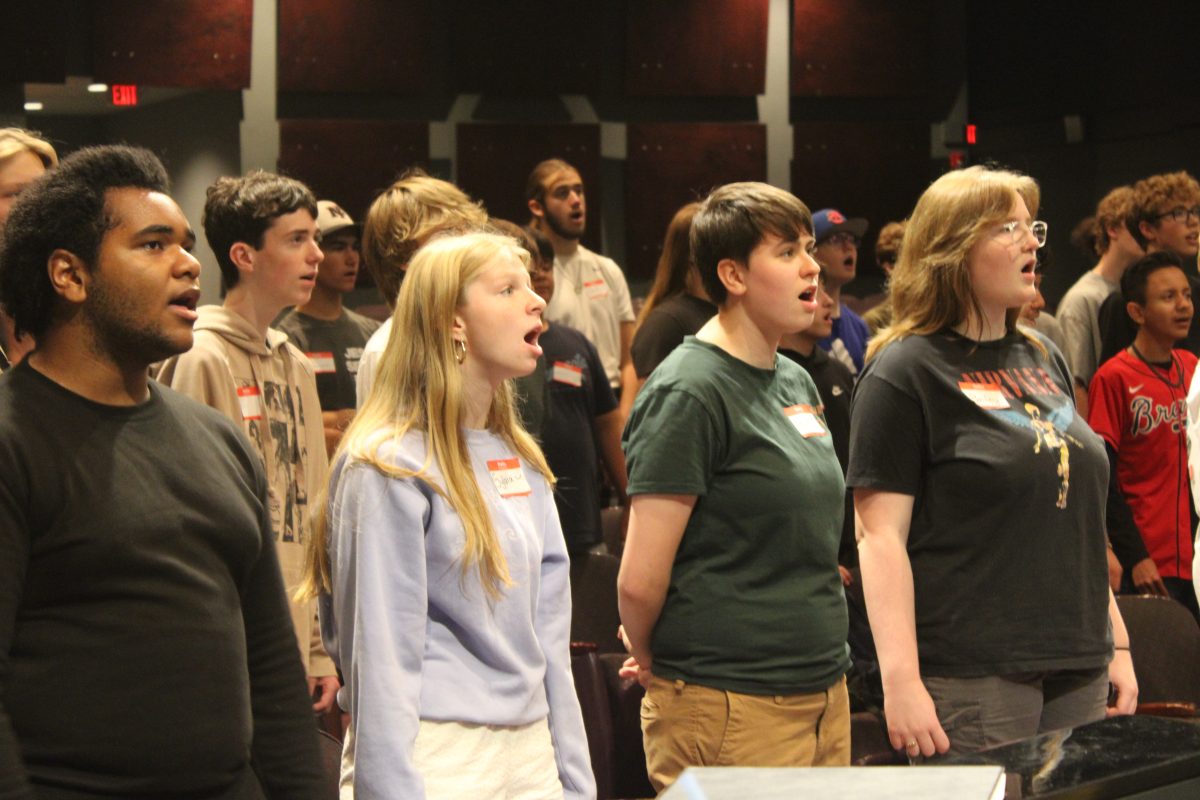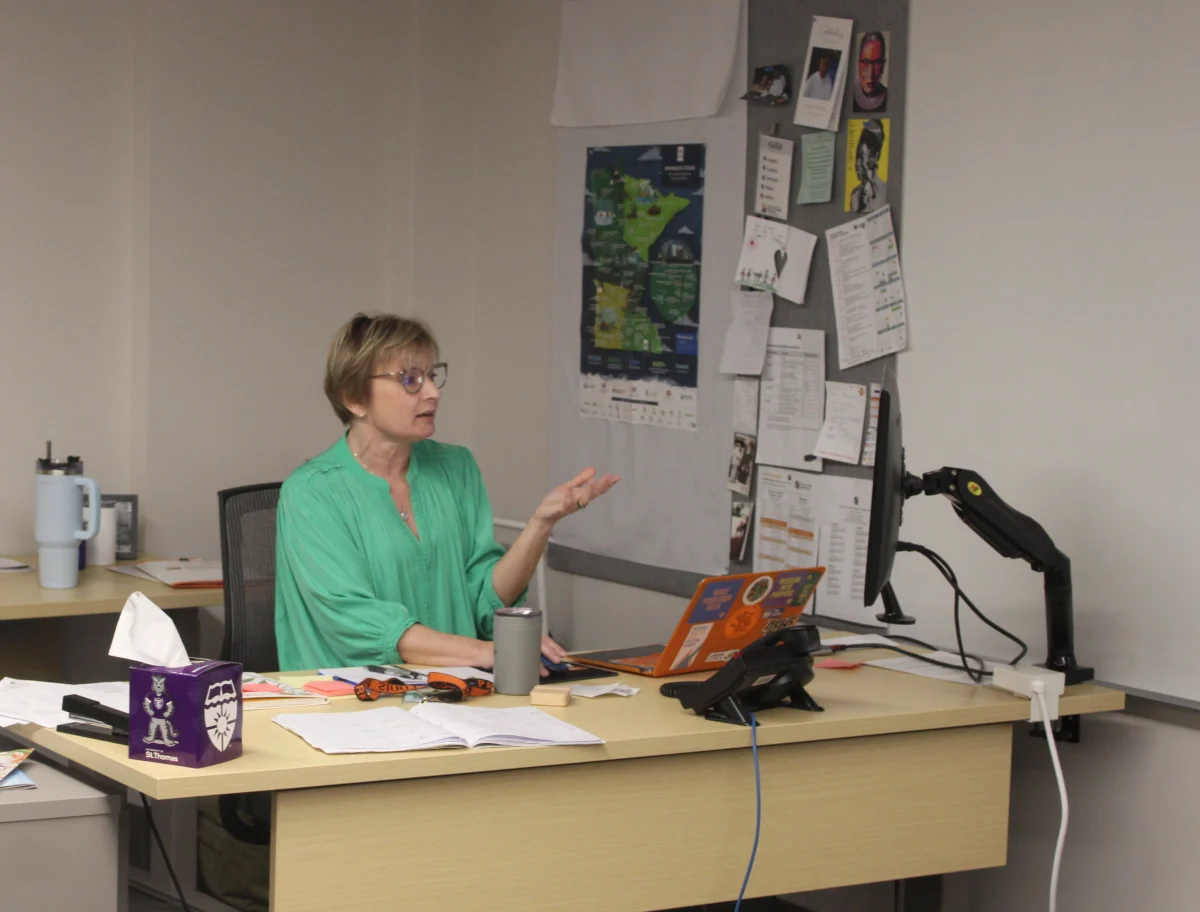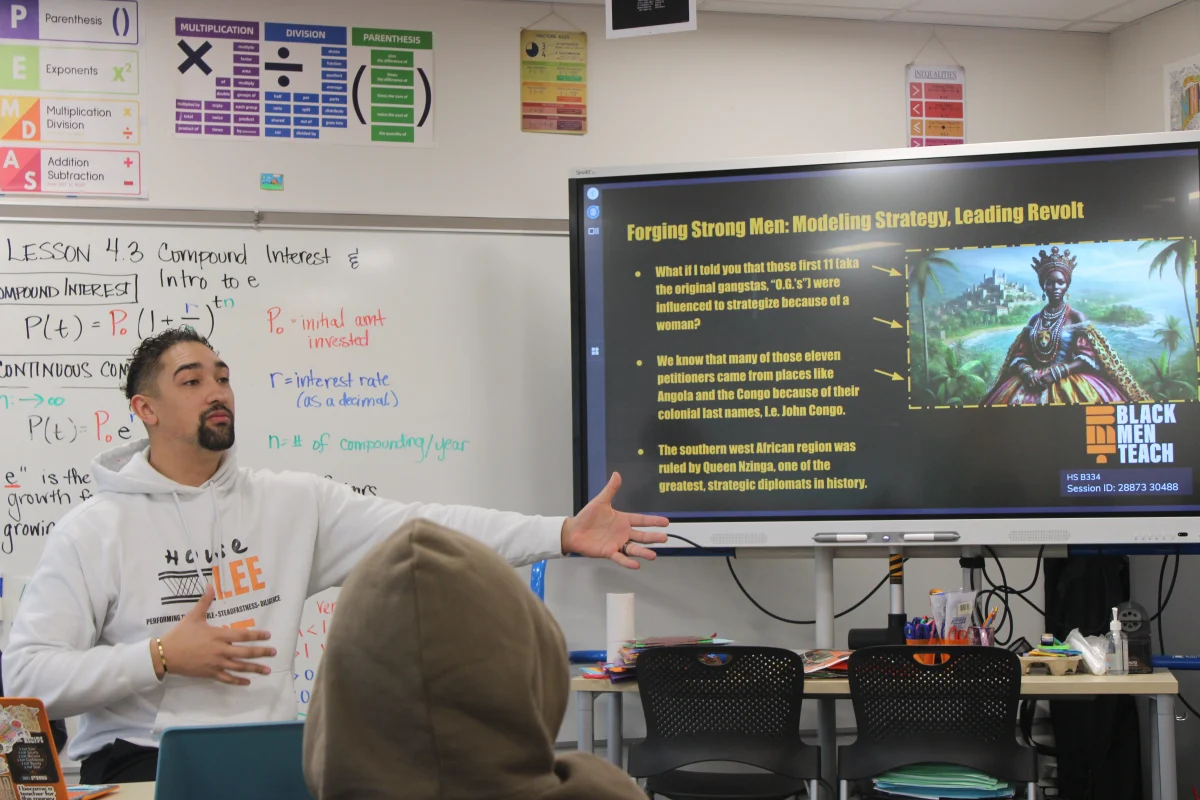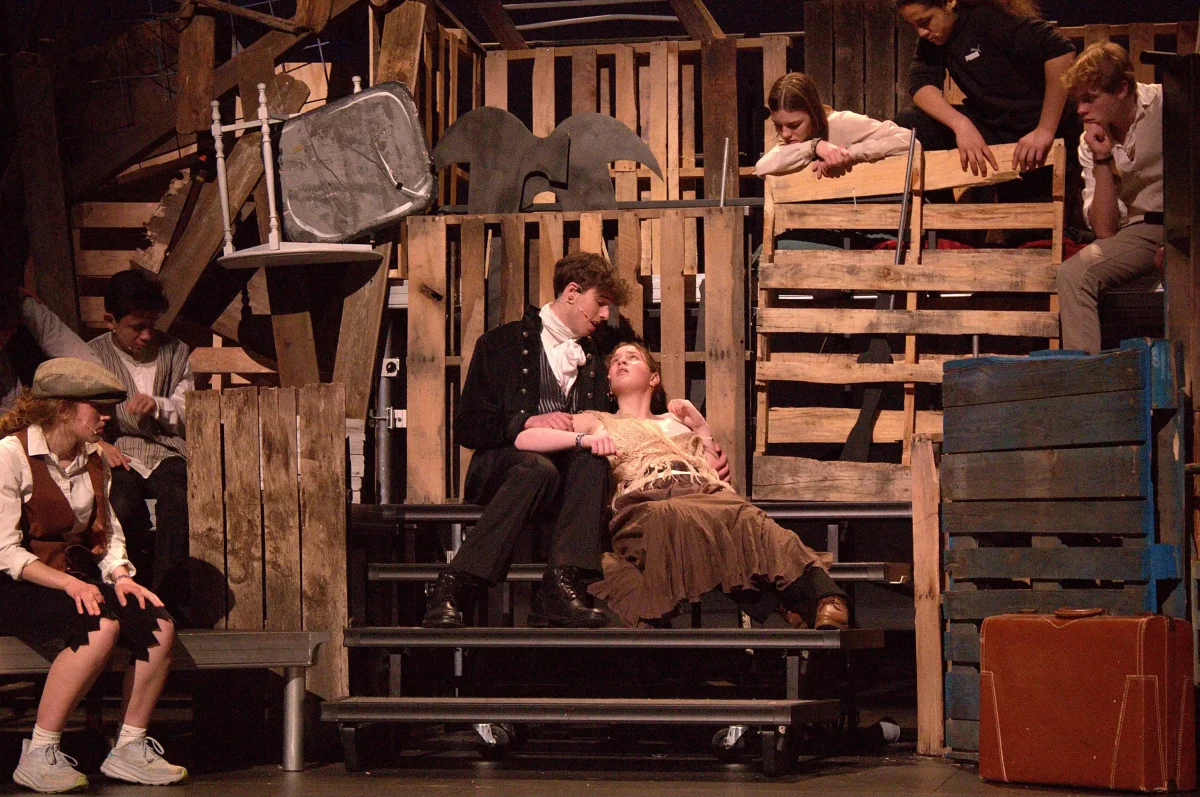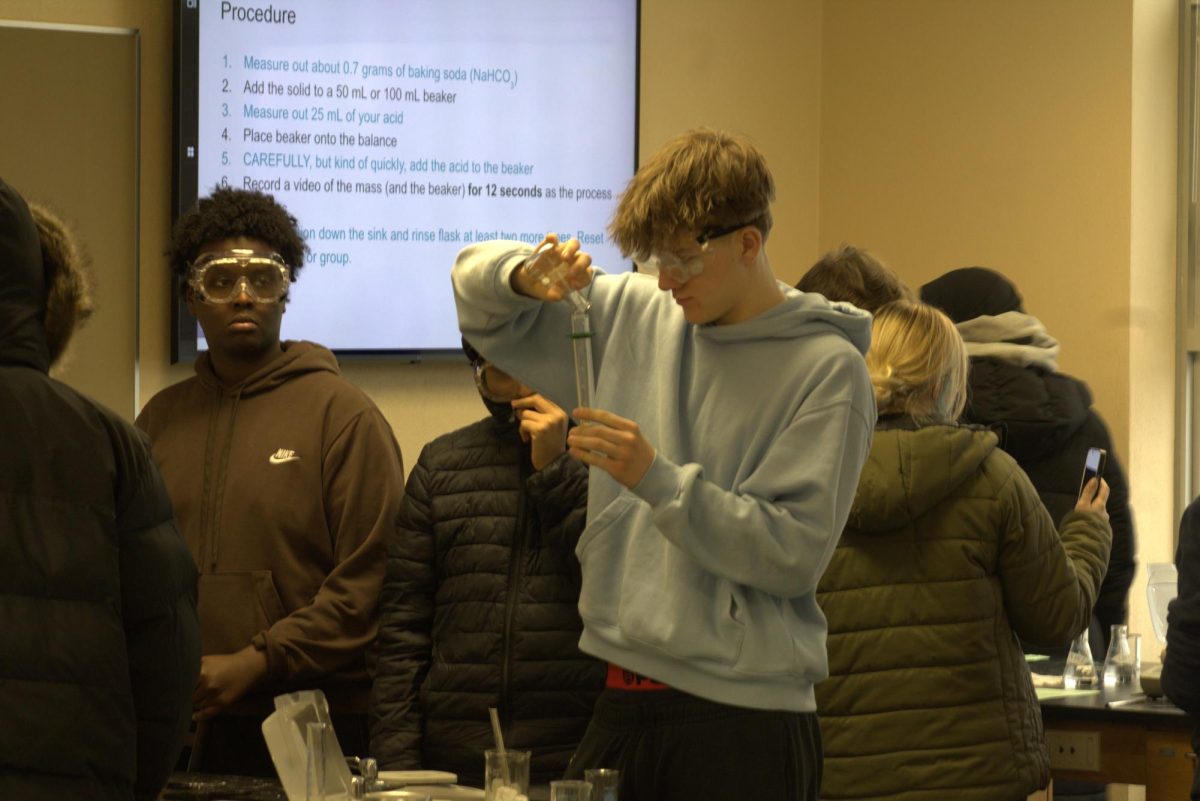Every year, Park hosts a tenor-bass choir festival with other schools. While the guest conductor of the festival changes, this year’s guest conductor was G. Phillip Shoultz III, who conducted this festival two-years-ago. This choir is open to 9th-12th grade tenor one, tenor two, baritone and bass-voiced students who are part of a choir in their own high school’s. This year, Park hosted Waconia, New Prague, Chanhassen and Chaska Sept. 30, at 9:30 a.m.
Guest conductor Dr. G. Phillip Shoultz III said one unique thing about this specific festival is the fact that there’s no preparation beforehand—you go in learning the music without sheet music and improve upon it together.
“There’s something freeing for everyone just to walk in and go, ‘oh, we’re just going to learn everything right here.’ They can really just be present in this moment. For them, they just have to be in choir, get on the bus this morning and be open and responsive,” Shoultz III said. “For me, it was deciding, ‘okay’, I’ve got so many things to choose from. What can I do in two hours that would have meaning and purpose and that would leave them feeling good?”
Senior Sylvia Tolzin said the festival was a great way to bond socially with different people from different schools who share similar interests.
“Two years ago, I came back [to the festival and choir] because (choir and the festival is) an awesome way to build communities between schools and hang out with like-minded people,” Tolzin said. “They were supportive, but still pushed me to be better.”
According to junior Alexander Castro, he skipped classes to sing with other students from Park and other high schools with a conductor.
“No, we had an instructor come in and he taught with different schools and different schools came here so, like four different schools came here, around, then we skipped, first, second, third, halfway. Fourth, and we sang songs with them,” Castro said.
Shoultz III said he likes the experiences he gets when working with choirs. He said he came back to work the festival because he and Myszkowski have a good relationship and he enjoys working with kids and making connections.
“Mr. Myskowski asked if I would do it again. I’ve done this in the past. What I like about this, one is focus on the process and not the product. It’s not that we have to do a performance and the stress of ‘let’s get these pieces learned and you’ve got to really sing this a certain way’,” Shoultz III said. “ There was a chance to really interact with and to teach them some concepts, let them play around with their voices and then walk away feeling good about choir and wanting to participate.”
According to Tolzin, she said she really liked the techniques Dr. Shoultz used and thought they connected to the music she is learning in choir. She said it was a good learning opportunity.
“A lot of the work that Dr. Shoultz did connect’s to the music we’re learning in choir, so it was good to see some techniques like training our voice to go different directions,” Tolzin said. “It’s good to see that and to see how that affects the blending of the musical noise.”
According to Castro, he appreciated the diverse music and being able to learn different music from different places.
“It’s like we have different songs from different languages—from Africa and some from Japan and I think one was German,” Castro said.
Shoultz III said he tries using techniques that aren’t technical so people can understand the techniques used and how to implement it in their singing.
“I’ve been teaching for over 20 plus years in some capacity or nothing of another. Ways to help people understand [and] use their voice without using technical terms, is something that I think is a specialty of mine that I work towards,” Shoultz III said. “How can I give them experiences and let them notice and observe, to draw their own information? And then just kind of start them on the process.”



